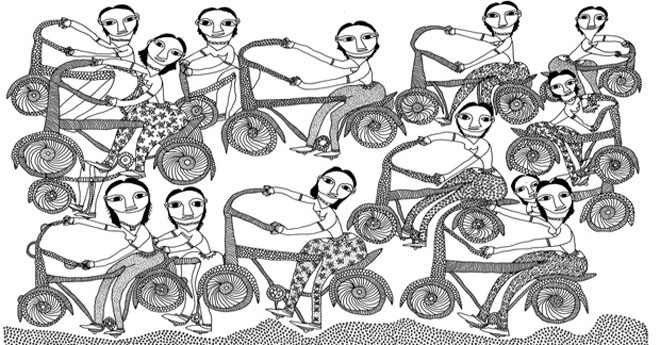
It is important that political will for gender equality in Pakistan is shown in letter and spirit

For a week every year, the political leadership of Pakistan turns its attention to the forgotten constituency; in simpler terms, its women. To compensate for the clear absence of political will, the fifty per cent of the country on this auspicious day is promised legislation to protect its rights in addition to a range of benefits and affirmative steps to level the unequal playing field.
In an ironic turn of events, female politicians single-handedly drafting bills on the burning issues of domestic violence and early child marriage are entertained by the top brass of their respective parties.
While the rest of the year they face hurdles dealing with unwilling male counterparts, for a day on March 8 ‘International Women’s Day’, their efforts are rewarded with token gestures of more day-care centres for working women, shelter homes for the abused, and female quotas in public sector jobs.
Even implementation of these pro-women provisions is debatable, no doubt.
Under the last one and a half year of Punjab Government under Chief Minister Shahbaz Sharif, the cabinet has only managed to approve and pass one bill benefiting women, The Punjab Commission on the Status of Women Act 2014. Meanwhile, bills submitted by the province’s female legislators on tougher punishments for honour killings, misuse of family laws, acid crimes, child marriage, and domestic violence have been sidelined due to relentless opposition of men, both within and outside of the ruling party.
At the federal level, a bill introduced by PPP MNA, Nafisa Shah, to allot ten per cent of general seats to women in elections in November last year is still to be tabled in the National Assembly. Startlingly, in the last three years in Pakistan only six laws have been passed favouring the forgotten constituency.
As Pakistan celebrates International Women’s Day, gender equality, despite assurances of progressive laws and empowerment initiatives, remains an elusive idea. A day of cake-cutting ceremonies, political sophistry, and humbug is insufficient in rectifying decades of negligence that has made Pakistan one of the most brutalised countries in the world.
According to Aurat Foundation, the number of incidents of violence has increased at least seven per cent over the last year. As many as 7,010 cases of violence against women were reported in Punjab alone in 2014.
Adding to the dismal state of affairs, an estimate 2.5 per cent of men involved in violence against women were convicted this year as per information provided by the Punjab Public Prosecution Department.
To its credit, governments in Pakistan have instituted regulations protecting women rights, including the highly successful 2010 Protection against Harassment of Women at Workplace Act. But there are no laws criminalising the rising epidemic of domestic violence, and laws against honour killings and other forms of gender discrimination are not being addressed forcefully enough with a culture of impunity fostered by law enforcement bodies.
Pakistan’s admirably resilient civil society is tasked with putting pressure on a political system insistent on neglecting fifty per cent of the population in exchange of maintaining power. Despite having a strong majority in the National Assembly, legislation on domestic violence and early child marriage was shelved at the behest of one hardline religious party and the purely advisory Council of Islamic Ideology.
After the attack on Army Public School Peshawar on December 16, the government geared into action and began formulating the National Action Plan to counter the wave of terrorism enveloping Pakistan. Out of the twenty points born out of the All Parties Conference and agreed to by all political stakeholders, not surprisingly, there was no mention of women and their vulnerable existence under a regime of gunpowder and Islamic militancy.
It is no secret that women are the primary targets in Taliban’s medieval vision for Pakistan. Yet the country’s mostly male political leadership has actively ensured that they are thrown under the bus, again and again.
The seriousness of governments over the past decades has made those in the forgotten constituency battling for their rights and against discrimination question if the status quo will ever change and the balance tilt in their favour.
A system cannot fail those it was never built to protect, once remarked a famous African American civil rights activist at the height of injustice. Let this powerful saying not resonate here in Pakistan for those struggling to be heard in the corridors of power.
On March 8 this year, it is important that political will for gender equality in Pakistan is shown in letter and spirit.